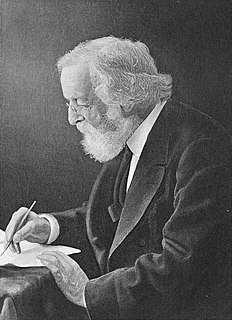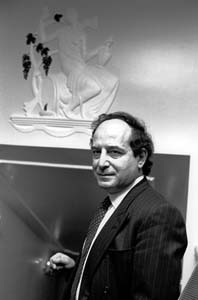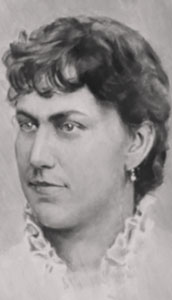A Quote by James Freeman Clarke
Unmixed praise is not due to any one. It leaves behind a sense of unreality. We can only do justice to a great man by a discriminating criticism. Hero-worship, which paints a faultless monster, whom the world never saw, is like those modern pictures which are a blaze of light without any shadow.
Related Quotes
Just praise is only a debt, but flattery is a present. The acknowledgment of those virtues on which conscience congratulates us is a tribute that we can at any tine exact with confidence; but the celebration of those which we only feign, or desire without any vigorous endeavours to attain them, is received as a confession of sovereignty over regions never conquered, as a favourable decision of disputable claims, and is more welcome as more gratuitous.
Criticism can never instruct or benefit you. Its chief effect is that of a telegram with dubious news. Praise leaves no glow behind, for it is a writer's habit to remember nothing good of himself. I have usually forgotten those who have admired my work, and seldom anyone who disliked it. Obviously, this is because praise is never enough and censure always too much.
Sahaja Yoga has cured people from cancer, from all kinds of diseases which they call incurable. How? Just by awakening the Kundalini. Sahaja Yogis don't go to any doctor, they had become doctors without studying Medicine. They treat the basics. While science is analysis, like a tree has got some leaves and are showing the symptoms of some disease they try to treat the leaves. But if you have to treat the leaves, you cannot do any justice, you have to go to the roots and treat the sap! And that is how - that is the only way you can treat the tree.
It never occurred to him to be spiritually won over to the enemy. Many moderns, inured to a weak worship of intellect and force, might have wavered in their allegiance under this oppression of a great personality. . . . But this was a kind of modern meanness to which Syme could not sink even in his extreme morbidity. Like any man, he was coward enough to fear great force; but he was not coward enough to admire it.
The monster does not need the hero. it is the hero who needs him for his very existence. When the hero confronts the monster, he has yet neither power nor knowledge, the monster is his secret father who will invest him with a power and knowledge that can belong to one man only, and that only the monster can give.
The only method of restoring the natural equality of dignity between men and women, lies in the demolishment of that elaborate theological structure which maintains that woman is made for the possession of man in a sense in which man is not made for woman, and that celibacy, per se, is a state of superior purity. Nature and common sense (not metaphysical sense) demonstrate that there is no good reason why any man or any woman should take, claim, or wield "lordship" over another.
To say that there is a case for heroes is not to say that there is a case for hero worship. The surrender of decision, the unquestioning submission to leadership, the prostration of the average man before the Great Man -- these are the diseases of heroism, and they are fatal to human dignity. History amply shows that it is possible to have heroes without turning them into gods. And history shows, too, that when a society, in flight from hero worship, decides to do without great men at all, it gets into troubles of its own.
Conscience is a judge in every man's breast, which none can cheat or corrupt, and perhaps the only incorrupt thing about him; yet, inflexible and honest as this judge is (however polluted the bench on which he sits), no man can, in my opinion, enjoy any applause which is not there adjudged to be his due.
In summer we live out of doors, and have only impulses and feelings, which are all for action, and must wait commonly for the stillness and longer nights of autumn and winter before any thought will subside; we are sensible that behind the rustling leaves, and the stacks of grain, and the bare clusters of the grape, there is the field of a wholly new life, which no man has lived; that even this earth was made for more mysterious and nobler inhabitants than men and women. In the hues of October sunsets, we see the portals to other mansions than those which we occupy.
Hero-worship is the deepest root of all; the tap-root, from which in a great degree all the rest were nourished and grown . . . Worship of a Hero is transcendent admiration of a Great Man. I say great men are still admirable; I say there is, at bottom, nothing else admirable! No nobler feeling than this of admiration for one higher than himself dwells in the breast of men.
Thirdly, the supreme power cannot take from any man any part of his property without his own consent: for the preservation of property being the end of government, and that for which men enter into society, it necessarily supposes and requires, that the people should have property, without which they must be supposed to lose that, by entering into society, which was the end for which they entered into it; too gross an absurdity for any man to own.






































